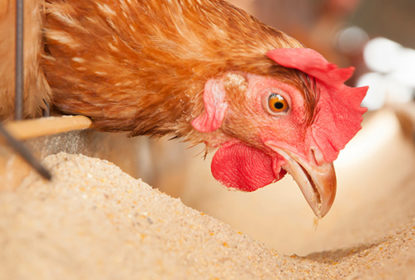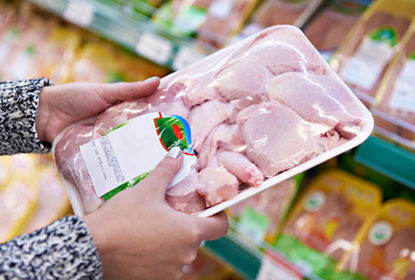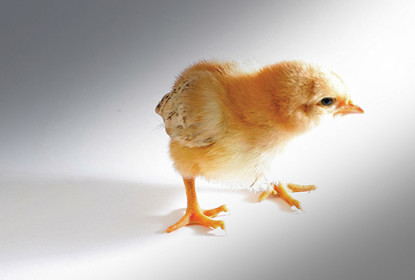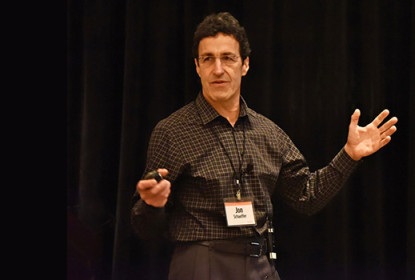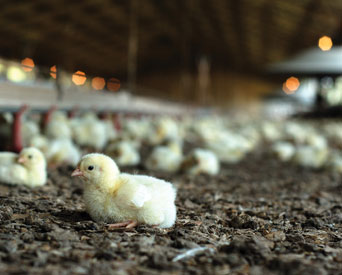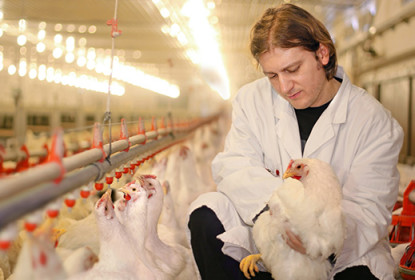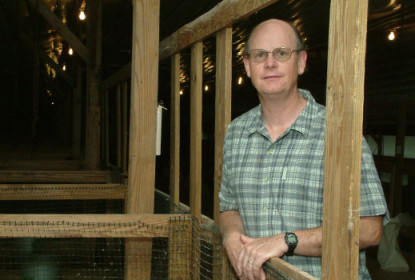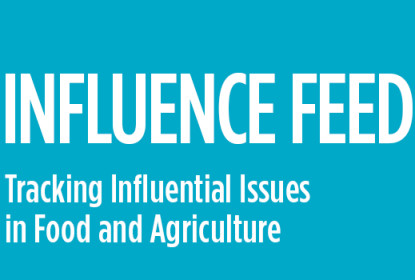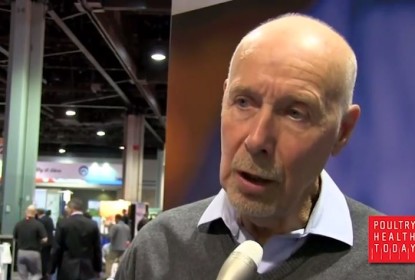Tag Archive: antibiotics, coccidiosis, economic impact, ionophores
... Cutting ionophore use could do more harm than good, veterinarians warn
Feb 03, 2022Jennifer GrullonComments Off on Cutting ionophore use could do more harm than good, veterinarians warn
SOUND SCIENCE: Removal or reduction of ionophores for the control of coccidiosis in poultry could lead to increased antibiotic use, higher production costs and negative impacts on climate-change...... Ionophore status change would threaten bird health, sustainability, veterinarian warns
Dec 02, 2021Jennifer GrullonComments Off on Ionophore status change would threaten bird health, sustainability, veterinarian warns
There is no need to recategorize ionophores, used as feed additives against coccidiosis, as veterinary medicines, says UK poultry veterinarian Daniel Parker — and doing so could have severe...... More than half of US broilers raised without antibiotics in 2018
May 06, 2019Jennifer GrullonComments Off on More than half of US broilers raised without antibiotics in 2018
Broilers raised without antibiotics accounted for 51% of total US production in 2018 — an 11-point jump from the previous year and, more significantly, up from 3% in 2014.... Special Report: What’s the future of ionophores in poultry?
Jun 29, 2018Jennifer GrullonComments Off on Special Report: What’s the future of ionophores in poultry?
In this special report, Poultry Health Today looks at the role of ionophores in managing a ubiquitous disease that costs the world's poultry industry more than $2.4 billion a year.... Are there practical alternatives to ionophores?
Nov 05, 2016Jennifer GrullonComments Off on Are there practical alternatives to ionophores?
Proponents of raising broilers without ionophores and other antibiotics have proposed putting more emphasis on farm management, biosecurity and alternatives to anticoccidials.... Five opportunities to optimize gut health, minimize necrotic enteritis in broilers
May 16, 2016Jennifer GrullonComments Off on Five opportunities to optimize gut health, minimize necrotic enteritis in broilers
By Suzanne Dougherty, DVM, MAM, MS, DACPV Pecking Around Consulting, Inc. Madison, Ala.
Announcements, Antibiotic-free, Flock welfare, Food Safety, Gut Health, Infectious Diseases, ippe2016 - Highlights from our latest issue, Mobile Only, News, PHT GLOBAL, PHT US
... Specialists explore new options for managing flock health while defending judicious antibiotic use
Mar 27, 2016Jennifer GrullonComments Off on Specialists explore new options for managing flock health while defending judicious antibiotic use
Growing demand for poultry raised without food-animal antibiotics has put more pressure on veterinarians to find alternative yet dependable disease-control options, according to a panel of nine...... Free 2015 AAAP Proceedings Booklet
Jan 21, 2016Jennifer GrullonComments Off on Free 2015 AAAP Proceedings Booklet
Pressures to reduce or eliminate antibiotics from poultry production have created new health and welfare challenges for chickens and turkeys. In this lively roundtable discussion, poultry industry...... Marketing vs. Medicine: Finding the balance
Jan 21, 2016Jennifer GrullonComments Off on Marketing vs. Medicine: Finding the balance
Growing demand for poultry raised without food-animal antibiotics has put more pressure on veterinarians to find alternative yet dependable disease-control options, according to a panel of nine...... Canada studies find no links between ionophores, resistance of other antibiotics
Dec 29, 2015Jennifer GrullonComments Off on Canada studies find no links between ionophores, resistance of other antibiotics
One of the few studies about antibiotic resistance and ionophores in poultry was published by Canadian researchers in 2007 who found that isolates showing resistance to multiple antibiotics can be...... Getting gangrenous dermatitis under control
Dec 22, 2015Jennifer GrullonComments Off on Getting gangrenous dermatitis under control
By Jon Schaeffer, DVM, PhD Director, Poultry Veterinary Services Zoetis Inc.... Ionophores look different to other scientists, too
Sep 28, 2015Jennifer GrullonComments Off on Ionophores look different to other scientists, too
Several organizations have drawn the line distinguishing ionophores from other types of antibiotics.... Are ionophores antibiotics? That depends on whom you ask
Sep 28, 2015Jennifer GrullonComments Off on Are ionophores antibiotics? That depends on whom you ask
In the EU — a market often perceived to be less tolerant of antibiotic use in food animals than the US — antibiotics used for growth promotion were banned in 2006. However, certain ionophores,...... Ionophores: The price of elimination
Sep 28, 2015Jennifer GrullonComments Off on Ionophores: The price of elimination
Published reports indicate that poultry operations not using any type of antibiotic, including ionophores, are indeed experiencing setbacks in production and flock welfare.... Omitting ionophores raises ethical conflicts for veterinarians
Sep 28, 2015Jennifer GrullonComments Off on Omitting ionophores raises ethical conflicts for veterinarians
Some advocacy groups believe that more restaurants and foodservice companies should follow the lead of Chipotle, Panera and Chick-fil-A, which only buy chickens raised without any products classified...... ‘Rotate smarter,’ says coccidiosis specialist
Sep 19, 2015Jennifer GrullonComments Off on ‘Rotate smarter,’ says coccidiosis specialist
Poultry producers need to “rotate smarter” and learn the differences between anticoccidials if they want to maintain effective and sustainable coccidiosis-management programs, says well-known...... How ionophores control coccidiosis
Aug 15, 2015Jennifer GrullonComments Off on How ionophores control coccidiosis
by H. David Chapman, PhD University Professor Department of Poultry Science University of Arkansas... Action on antibiotics
Mar 10, 2015Jennifer GrullonComments Off on Action on antibiotics
In a March 3 announcement, McDonald’s said that while it would only source chicken raised without antibiotics important to human medicine, “the farmers who supply chicken for its menu will...... Trade-offs needed in gangrenous dermatitis management
Feb 25, 2015Jennifer GrullonComments Off on Trade-offs needed in gangrenous dermatitis management
Don Ritter, DVM, of Mountaire Farms, Millsboro, Delaware, discusses his experiences managing gangrenous dermatitis in broilers, the disease’s relationship with coccidiosis and what producers can do...... Let coccidiosis organisms ‘see something different’
Nov 06, 2014Jennifer GrullonComments Off on Let coccidiosis organisms ‘see something different’
Poultry producers are losing ground to coccidiosis because they’re not implementing effective rotation programs that employ different types and classes of anticoccidials, says Don Waldrip, DVM, a...


